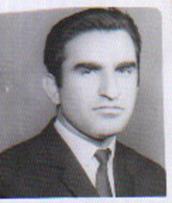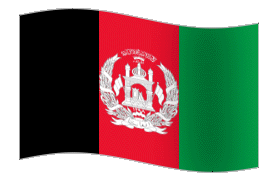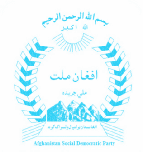Shamsul Huda Shams

Shamsul Huda Shams, the late president of Afghan Social Democratic Party well known
as Afghan Mellat Party, who passed away last year in October, was one of the great
Afghan leaders, who had devoted a lifetime for achieving his cherished goals. He
might not have achieved in his lifetime all what he stood for, but his courage, steadfastness
and constant struggle are indicators of his greatness and the strength of his character.
He did provide an ideological base for his followers to pursue his mission. Those
who knew him from close were quite aware of his charisma and over-
Shams
belonged to a respectable and well-
Shams was very young when he started to develop a nationalistic
thinking. He was greatly inspired by the nationalist movement of Bacha Khan, which
was then in its full swing. When the 1964 constitution legalized the formation of
political parties in the country, this freedom soon resulted into founding of three
main political movements which could be broadly classified as Islamist, Marxist and
Nationalist respectively. The nationalist movement appeared in the form of Wekh Zalmyan
(Awakened Youth), and Afghan Mellat Party founded by Engineer Ghulam Mohammad Farhad,
a former mayor and ex-
When
the communists took power in 1978, Afghan Mellat Party came under tremendous pressure
from the authoritarian regime due to its nationalist agenda. However, the party continued
its activities with a renewed pledge to struggle for the protection of national interests
of Afghanistan by strongly opposing the communist regime. It was then that Shamsul
Huda Shams was unanimously elected as party secretary-
It was here
in Peshawar where Shams spent almost 27 years of his life and this makes up the most
important part of his political career. He established a well-
In 1984, Afghan Mellat founding president Eng. Ghulam Mohammad
Farhad passed away in Kabul and the party managed to hold election for the new president
in April 1987. The three candidates for the party presidency were Shamsul Huda Shams,
Qudratullah Haddad and Mohammad Amin Wakman. Shams won with an overwhelming majority,
but supporters of Wakman refused to accept the electoral results and hence the party
was split up into three factions. It is Wakman’s faction that is currently led by
Anwarul Haq Ahady. While Qudratullah Haddad, after a few years, announced his support
for Shams.
During the communist rule, several offers were made to Shams to support
the regime and the then Afghan President Dr. Najibullah personally wrote to him several
times to get his support. He was also offered a cabinet position to join the communist
regime, but Shams remained adamant and turned down all such offers. He believed joining
or supporting the regime would be treason against the national interests of Afghanistan
and a negation of the very manifesto Afghan Mellat. He thought this would be a grave
mistake which could never be compensated.
When Dr. Najibullah was overthrown in April
1992 by an unholy alliance between his own commanders and some Mujahideen groups,
the results were disastrous for the country. On one hand the UN peace plan was sabotaged
and on the other hand the power vacuum created complete anarchy in the country. This
was one of the worst periods in Afghanistan history in terms of lawlessness, insecurity
and violation of human rights. This situation was very disturbing for Shams, who
was hopeful of a peaceful transfer of power from Najibullah to a 15-
Shams looked
with optimism at the new developments in the country after the Taliban Regime was
overthrown. However, being a true democrat he had some reservations regarding the
ethnic composition of the administration. He believed that a more proportionate representation
of all ethnic groups in the government would bring more stability and a sense of
deprivation might well result into disharmony and tension, which he thought would
be disastrous for the unity of the country.
The legendary Shamsul Huda Shams breathed
his last on October 9, 2005 at the age of 67 in his hometown Noorgal in Kunar Province.
While Shams did not live to see his dreams come true, his followers will continue
his legacy. May God bless his soul!
دافغان ملت ملي مترقي ګوند

Afghanistan Social Democratic Party

Copyright © Afghan Millat 2007-